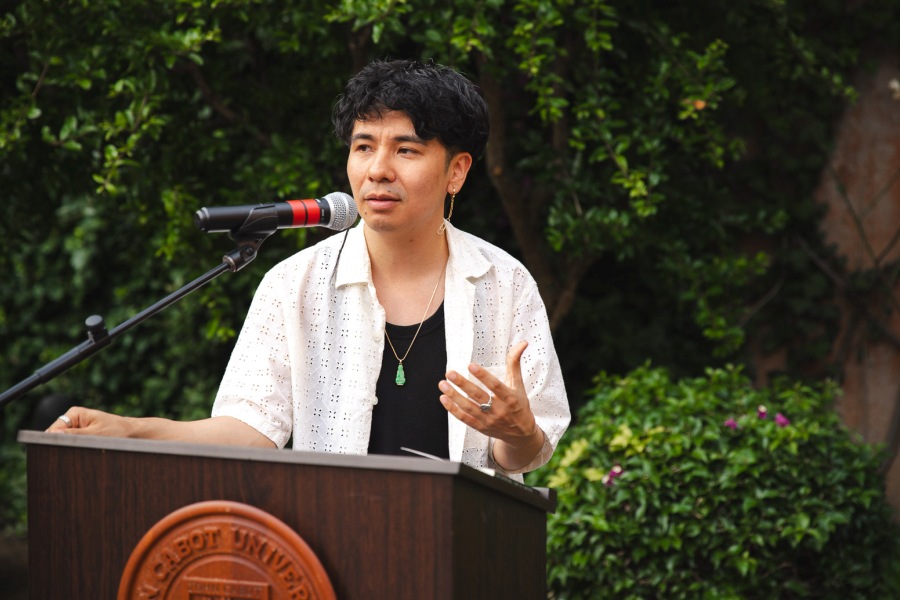(W)rapping the Tunisian Revolution: A Lecture by Nouri Gana
JCU Department of Communications hosted Nouri Gana on April 11, 2018 for a talk entitled “(W)rapping the Tunisian Revolution,” a Media and Communication Speaker Series event. Nouri Gana is Professor of Comparative Literature and Near Eastern Languages and Cultures at the University of California, Los Angeles (UCLA). He is the author of Signifying Loss: Toward a Poetics of Narrative Mourning and the editor of The Making of the Tunisian Revolution: Contexts, Architects, Prospects and The Edinburgh Companion to the Arab Novel in English. He is spending this academic year between Tunisia and Turkey on a New Directions Fellowship awarded by the Andrew W. Mellon Foundation in the United States.
Professor Gana discussed the role of rap music in the Tunisian revolution. The motives that led to the revolution were unemployment, poverty, corruption, and lack of freedom of speech under the presidency of Zine El Abidine Ben Ali. What initiated the revolutionary process was the self-immolation of Mohammed Bouazizi on December 17, 2010.
Finalized 14 January 2011, the revolution in Tunisia was marked by its digital character. Professor Gana explained that it was mainly done through online media channels and called it a “digital revolution.” Cyber activists frequently uploaded videos on YouTube and used Twitter and Facebook to protest. In this context, rappers started assuming an activist agenda, speaking for the people by writing songs against the regime and spreading them on the Internet. Many rappers remained underground due to the political statements their lyrics contained. On the other hand, there were artists who continued in the commercial industry by not producing songs about politics.
Professor Gana demonstrated some examples of Tunisian rap such as Férid El Extranjero’s “3bed fi tarkina” (“People in the Corner”). Professor Gana said that the message of the song is a direct reference to the lack of free speech in Tunisia and it affirms that “if you speak, you’ll end up in prison.” In fact, El Extranjero released “3bed fi tarkina” from Spain to escape Tunisian police.
El Général’s “Rais Lebled” (“Mr. President”) sends direct messages to Ben Ali, demanding his resignation. El Général became the voice of Tunisia with this song, where he describes the extreme living conditions in the country and criticizes the president’s indifference:
“Mr. President, your people are dead,
Many people eat from garbage,
And you see what is happening in the country,
Misery everywhere and people who have not found a place to sleep,
I am speaking in name of the people who are suffering and were squashed underfoot.”
Professor Gana suggested that the advent of rap during the Revolution got people to talk, think, and self-reflect. “Rap music blossomed like a midnight mushroom in revolutionary Tunisia,” he added. However, he also pointed out that post-revolutionary rap grew too complex and entered into conflict with pop music.






